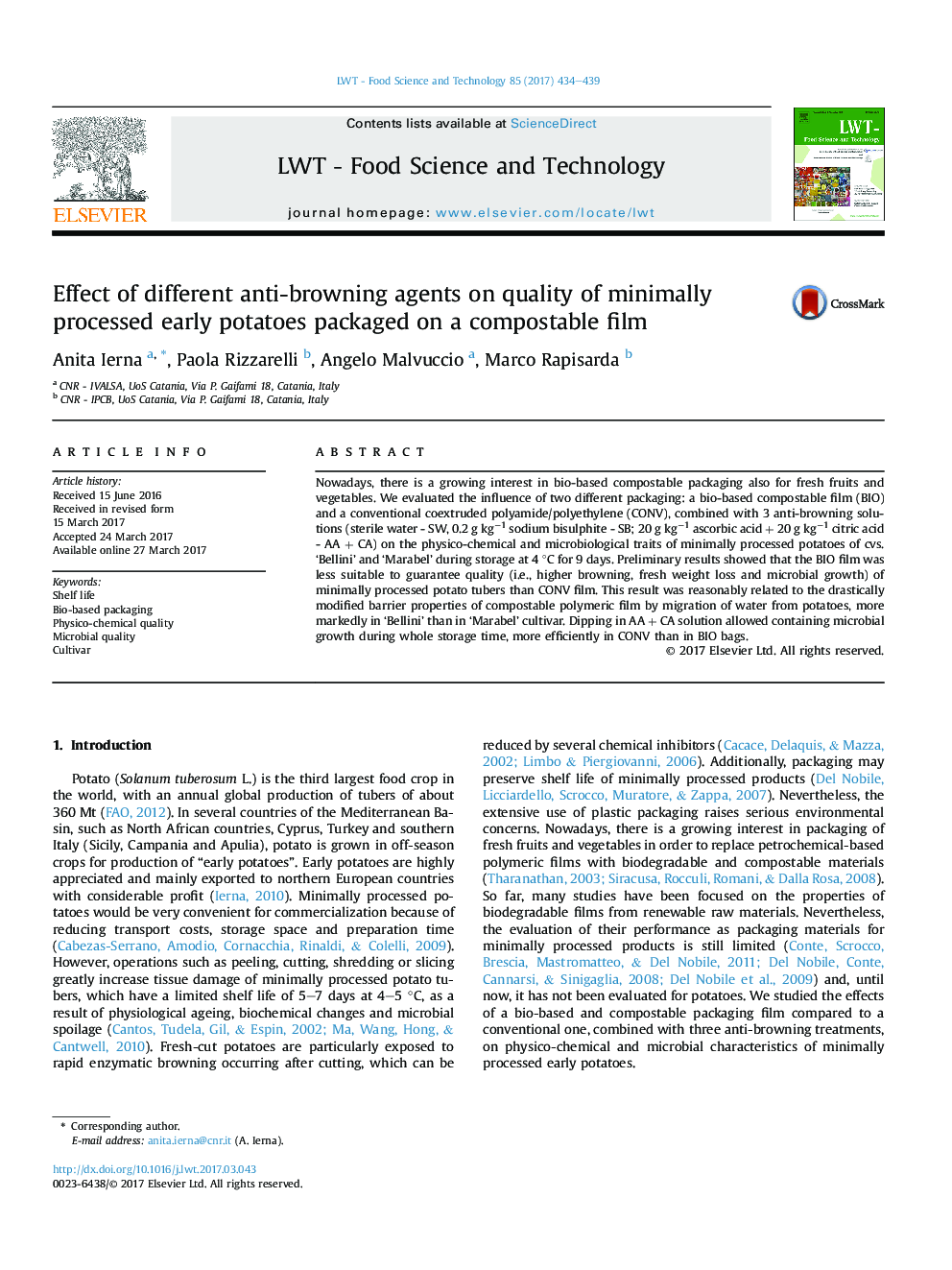| Article ID | Journal | Published Year | Pages | File Type |
|---|---|---|---|---|
| 5768402 | LWT - Food Science and Technology | 2017 | 6 Pages |
â¢Dipping treatment combined with a conventional plastic film preserved the quality of potatoes.â¢The compostable film used was unsuitable to guarantee quality of minimally processed tubers.â¢Migration of water from potatoes to the compostable film modified its barrier properties.â¢In compostable packaging, dehydration in tubers of 'Bellini' was more evident than in 'Marabel'.
Nowadays, there is a growing interest in bio-based compostable packaging also for fresh fruits and vegetables. We evaluated the influence of two different packaging: a bio-based compostable film (BIO) and a conventional coextruded polyamide/polyethylene (CONV), combined with 3 anti-browning solutions (sterile water - SW, 0.2 g kgâ1 sodium bisulphite - SB; 20 g kgâ1 ascorbic acid + 20 g kgâ1 citric acid - AA + CA) on the physico-chemical and microbiological traits of minimally processed potatoes of cvs. 'Bellini' and 'Marabel' during storage at 4 °C for 9 days. Preliminary results showed that the BIO film was less suitable to guarantee quality (i.e., higher browning, fresh weight loss and microbial growth) of minimally processed potato tubers than CONV film. This result was reasonably related to the drastically modified barrier properties of compostable polymeric film by migration of water from potatoes, more markedly in 'Bellini' than in 'Marabel' cultivar. Dipping in AA + CA solution allowed containing microbial growth during whole storage time, more efficiently in CONV than in BIO bags.
